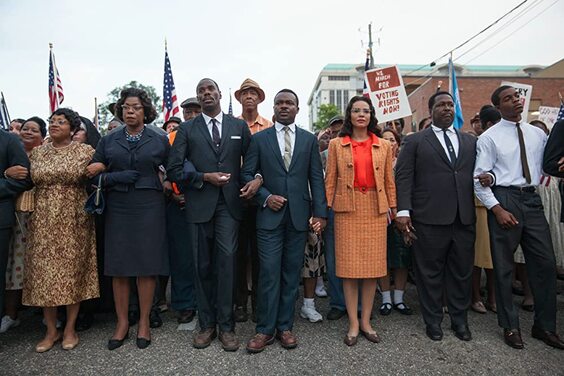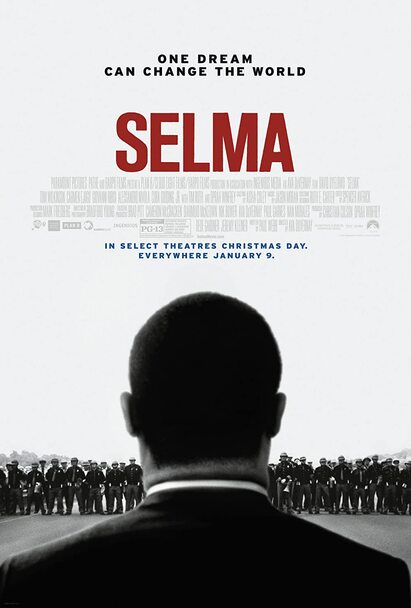Written by John Edward Betancourt  Something that is truly fascinating about modern America, is that so many of its citizens tend to view history through rose colored glasses. Manifest Destiny for instance, is taught and viewed as a giant turning point in American history, one where this nation expanded itself in a bold and noble manner, laying the foundation for the country we are today. And of course, we often look at World War II as our shining moment, wherein we put the world’s troubles upon our backs to save it from the horrors of the Third Reich and we even see the Civil Rights Movement as a flawless moment of progress as well, since it symbolized the ideal that all men are created equal. But while it is wonderful to ponder upon those important moments in a positive light, let’s be honest… our view of them isn’t exactly accurate. Because Manifest Destiny saw the wholesale slaughter of Indigenous Americans to bring many of the western states of life, and World War II quickly got out of hand because of our xenophobia and desire to remain out of the conflict, and action was only taken when the bloodshed came to our shores. And of course, the Civil Rights Movement was quite the fight for equality, one wrought with violence and ugly moments as Caucasians in the south fought to resist change in a desperate effort to hold true to ideals long gone, the kind that still permeate the south today. If anything, it’s important to recognize that history isn’t always rosy, so that we don’t repeat its mistakes, and one handy way to dive into the harsh realities of history, is by way of storytelling. For creative minds can recreate those all-important moments and help us to understand their gravity and recently, this reviewer had the opportunity to watch a film that does a phenomenal job of helping us to understand the power and importance of a critical moment in the Civil Rights Movement in, Selma. Now, in this particular film, we are transported back to 1964 to properly understand exactly why Doctor Martin Luther King Jr. wanted Selma, Alabama to be a place of note in the mind of Americans and it just so happens to relate to the fact that some grave injustices were happening in that part of our country at that time. For African Americans were forced to go through all kinds of processes and busy work in order to vote in that state, despite the fact that the law made voting for all, legal. And to top it off, police and everyday citizens down there, were still viewing African Americans as second-class citizens, despite the fact that segregation was also forbidden in this part of the world and those core issues helped Doctor King to realize that coming to Selma and pushing for voting rights, and having that iconic March, was critical to changing the way the nation viewed equal rights.  Because America would see firsthand, the kind of oppression and wanton violence that was being waged against African Americans in the name of outdated and stupid views and that revelation adds some serious depth to this March and makes it far more significant than a fair chunk of us learned in school. For it goes to show that Doctor King understood that one possible way to properly end decades of this kind of systemic racism, was to put it on display and show the world how wrong and unsettling it is and the movie definitely holds nothing back in that arena either. Because in order to properly understand it, the viewer must also face it and that is why we are privy to some harrowing and supremely uncomfortable scenes. The kind that allows for us to experience the horrors that African Americans went through back then and sadly… are still going through. Since some of the images here appear as though they were cloned from news broadcasts from last summer. Which means that this movie also makes it clear that while we’ve come far in race relations in America, in many ways… we didn’t learn our lesson and we have miles to go. And that is a sobering realization to come to, and it makes the ending of this film, bittersweet in a way. Because the work isn’t done yet, but at the same time there is still room for hope. For the film’s unfettered examination of Doctor King himself, and the toll this event took upon him emotionally, speaks to the fact that such change cannot be up to one man. Instead, it is up to all of us to call out racism when we see it, and shame it and push it away until it finally does die. Only then will the sacrifices made in Selma be properly honored, and the fact that there is solid awareness around equal rights once again, is what gives one hope when this inspiring movie comes to a close. But all commentary and lessons aside, it really is powerful to see Dr. King and his friends and co-workers, stand tall against adversity and fight for what’s right and what’s just in the world. For these men and women exhibit a level of bravery that few will ever understand, and they endured incredible hardships to reach their goal and really… their struggles remind us to never give up when it comes to the big causes and to never stop fighting for them. Because that is what will make the world a better place for all and all of these elements make this a powerful and poignant film. One that truly gives us some incredible insight into a segment of our nation’s history that we need to talk about more, and properly learn from, and if by chance you haven’t seen this motion picture, please do so as quick as you can and if you already have… watch it again and celebrate it often. For it is a historic and moving masterpiece that reminds us that when we band together, we can achieve anything.
0 Comments
Leave a Reply. |
Archives
March 2025
|
|
© 2012-2025, Nerds That Geek LLC.
All Rights Reserved. |
uWeb Hosting by FatCow


 RSS Feed
RSS Feed